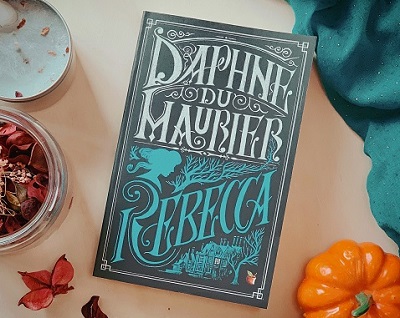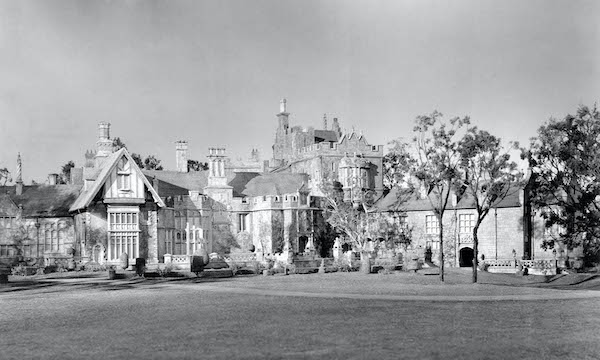
Return to Manderley: On Nostalgia and Daphne du Maurier’s ‘Rebecca’
On 8th September, the trailer for the new movie adaptation of Daphne du Maurier’s Rebecca was released. It’s produced by Netflix and will be out on 21st October. Like any movie adaptations of books I love, I am both nervous and excited for it. Despite my reservations, I know I will definitely be watching the movie. So I decided to go back and reread Rebecca, almost a decade after the first time I read it.
Last night I dreamt I went to Manderley again.
Revisiting Manderley now feels to me more like a nostalgia trip than an objective reading experience. I first discovered Daphne du Maurier’s books in university, at a time when I was expanding my consumption on horror and gothic literature. So it was in a fever rush that I read Rebecca while trying desperately to avoid my academic reading materials. I was transported to the gothic remote setting of Manderley with its view of the sea, colourful rooms, extravagant meals, and the relaxed mood of lavish indulgence. It felt far away from the cramped apartment I was living in at the time, smack in the middle of a bustling city. Manderley was a fantasy, one I happily indulged in.

Du Maurier’s inspiration for Manderley came from Menabilly, a historic estate in Cornwall, England. She found the estate by accident in 1927 and became enamored. She eventually moved to Menabilly in 1943 with her family and lived there for more than two decades. The estate wasn’t in a good condition then and she tried her best to restore it to its former glory. She loved the atmospheric, beautiful house and it’s evident in the pages of Rebecca from the way the unnamed narrator describes the fictional Manderley.
The narrator, only known as the second Mrs de Winter, is a poor lonely orphan who receives the enticing offer to marry widower Maxim de Winters and move to the magnificent Manderley. While alarm bells should have been ringing, I could also understand the choice she makes. Who wouldn’t jump at the chance? But when something looks too good to be true, it usually is. She finds herself stuck in a lonely place with a cold, uncaring husband and a housekeeper, Mrs Danvers, who actively despises her. All while she’s haunted by the memories of Rebecca, the first Mrs de Winter and the woman she replaced. The narrator is an anxious, overthinking person, and this situation exacerbates her paranoia. I loved how the writing makes it clear a lot of the worries are in her head, but there is also something darker going on underneath.
Manderley feels like a looming character in the background, as the narrator discovers clues to the life of the woman before her. I found it delightful trying to figure out the puzzle, especially from her interactions with the supporting characters such as Max’s loyal agent, Frank, and Max’s sister, Beatrice. Yet the reveal is still a surprise. The final third of the book is suspenseful, tense and showcases everything in a different light. This is a haunting mystery that – depending on your view – doesn’t end well. It’s full of despicable people making terrible choices and having to face the consequences. Everyone has a hand in how everything unfolds.
If only there could be an invention that bottled up a memory, like scent. And it never faded, and it never got stale. And then, when one wanted it, the bottle could be uncorked, and it would be like living the moment all over again.
In a way, everything that happened to Manderley in Rebecca is a reflection of what will happen later in du Maurier’s life. When her lease ended 1969 and she had to leave Menabilly, she was said to be devastated. In 1989, she visited Menabilly for the last time before she died three days later. Those happy years of living in the house were lost in the past, and all she had were her memories.
Some people have said Rebecca has a happy ending, but I personally find it gutting. It makes me think about how we create memories in certain places and time, and that no matter what we do, we can never go back. Rereading Rebecca transported me not just to Manderley but to that time in my life when I was a student on the brink of adulthood. I still think about the secluded, dusty corner in the fiction section of the university library where I discovered du Maurier’s books. I cannot go back, but those memories remain. When the narrator says she still dreams of Manderley, I feel the same way too.
Have you read Rebecca? Let me know in the comments below!
Sources: [1] [2]
About the author: Daphne du Maurier







6 Comments
Tammy @ Books, Bones & Buffy
Ooh I hadnt seen the trailer yet. It looks pretty good!
Aina
Right? I’m excited for it! 🙂
Allison Speakmon
This is such a well written article. Cant wait for this!
Aina
Thank you so much!
Yvonne Beer
I have read “Rebecca” three times and it remains one of the most hauntingly memorable stories that I have ever read! It captured me totally while reading it and, it encaptures me still.
Read By Dusk
I feel the same way! It’s such a wonderfully written book.